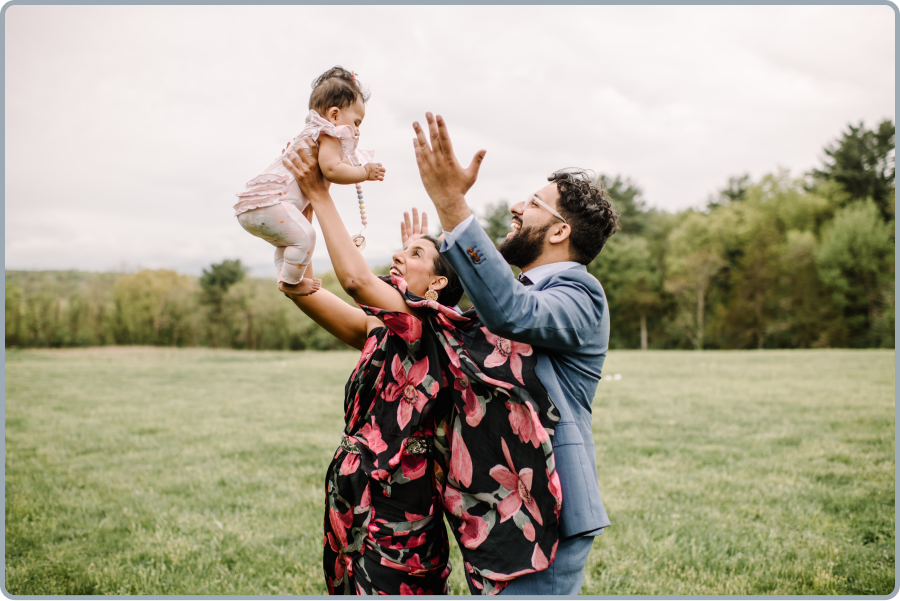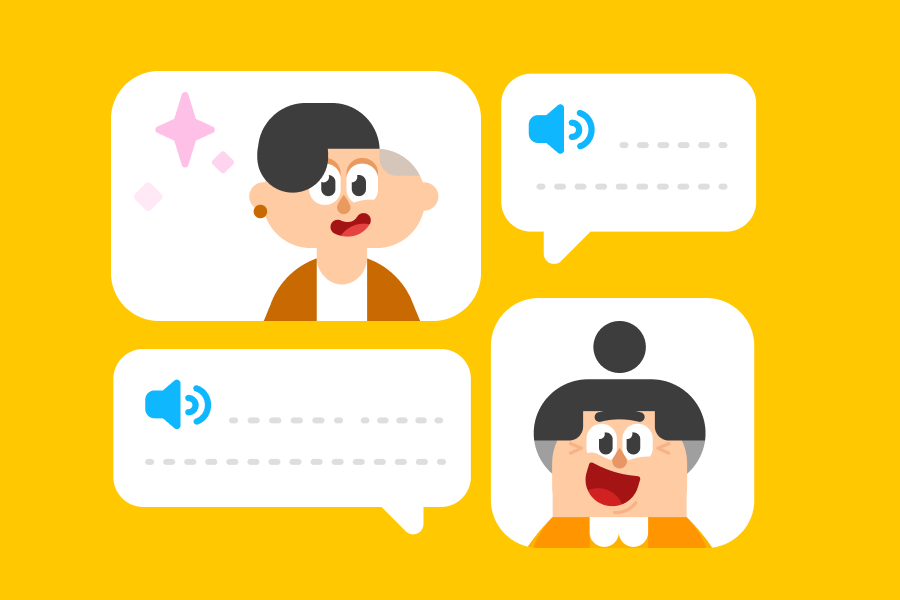
I always thought: I’m not good with other languages.
It’s not like I didn’t have the opportunity; my childhood was filled with the sounds of car-ride qawwali Urdu, of Qur’an lesson Arabic, of international calling-card Punjabi. I spoke English just fine, but growing up, I desperately wanted to learn at least one of these other languages. Or, more accurately, relearn. My first language was actually Urdu.
I was a little over a year old when I started speaking and at the time, we lived in Rawalpindi, surrounded by the sounds of hawking, haggling, and horns. It was a hard year for the family — my grandmother and grandfather had both passed away, and we had moved back to take care of things — but my mother says one of the things that helped them heal was watching me, this little American toddler, speak rapid, confident Urdu.
But, I have no memory of this. We returned back home to Michigan and the stress of speaking English in this new environment caused me to forget my first language. My family was convinced that the Urdu must be buried deep in there, in my heart or brain. They said I just had to try to speak and it would come back, but when I tried, I froze. I thought it had to be perfect. I couldn’t even form a sentence, much less pronounce the sounds or correctly gender things. I would comb through cardboard boxes in our basement, hoping to find the video tapes that were evidence of that chalaack kid with the desi accent.
The first hint that there were some remnants of my first language was actually Spanish class. While the other kids struggled with phrases like “dia de los muertos,” I could easily parrot the teacher’s pronunciation. I didn’t really pick up the language beyond the basics, but I cherished finding this previously-undiscovered talent.. So, I thought: Maybe I’m not good at languages, but I’m good at sounds.
In college, I learned why those sounds came easy… and much more. In Urdu class, I realized that there were many different kinds of “d” and “t” sounds in the world — and Spanish and Urdu shared them in words like “tu” and “das/diez.” Without even realizing it, I was reproducing a sound I had made many times before. There it was, buried deep. In linguistic anthropology classes, I learned that we have an easier time with the sounds we’re exposed to when we are young. And to my surprise, languages like English, Spanish, and Urdu weren’t all so different. They were cousins, in the big, diverse Indo-European family. And despite four years of Arabic study, I learned that I still struggled with speaking new languages. I’m still working on that one. Inshallah. Maybe another few years will do it.
By the time I was 22, I achieved my childhood dream of speaking Urdu again. My accent or grammar isn’t perfect, but I can communicate in ways that bring new joys and depth to my life. I traveled to India and Pakistan independently, not looking to anyone for translations. I spoke with sources in restaurants as a food journalist. I spoke with family in Pakistan. And I spoke with my partner Salimah, who I met in Urdu class. But the truth is: It wasn’t as easy as the language just coming back to me. I had to practice, integrate the language into my life, and learn the challenging writing system. I had to learn to be okay with being wrong.
My accent or grammar isn’t perfect, but I can communicate in ways that bring new joys and depth to my life.
Unfortunately, my mother was not able to see her youngest again feel comfortable in her first language. But now, over a decade since I re-learned Urdu, I have a new person to practice with: our chatty, one year old daughter Aziza. Pretty quickly, I realized I had exhausted the same few phrases in Urdu. I don’t know the word for all the animals in her books. I don’t know all the numbers, because the language has one of the most confusing systems I’ve ever encountered. I had to start studying again. But this time, I wasn’t scared of being bad at it. I just had to try.
What I learned from re-learning Urdu is that any work you do on language — whether it’s vocabulary, grammar, accent, or even swear words — will be useful. There is no being good or bad at language. I no longer worry about being perfect. I try to practice new sounds whenever I hear them. Try new sentences. And every new thing I learn, makes all the rest easier. I treasure being raised in a house with multiple languages, but I regret feeling any hesitation at speaking them. I want to install in my child the same curiosity around language that I was raised with and that starts with speaking.
Armed with this realization, I’ve started taking Amharic lessons, my father-in-law’s language. I was hopeful some of my previous studies can help—Arabic and Amharic are cousins, from the Semitic language family. But trying to simply imitate the words, I soon realized that there were a lot of sounds that weren’t familiar to me. So I turned to how I learned the other languages: practice, failure, writing, reading, and speaking. I’m not sure I’ll ever become fluent, but it’s important to me that Aziza hears the sounds of all the languages of her family. Arabic. Urdu. Amharic. Punjabi. English. Maybe it’s not perfect, maybe it’s Americanized. But I know we will benefit from it. There is treasure buried in the nostalgia of trying.
-
Ahmed Ali Akbar is a James Beard Award winning writer and host of Radiolingo, a new podcast from Crooked Media and Duolingo.



